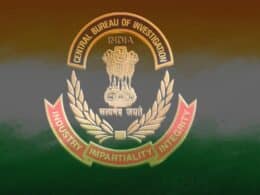A popular saying states that ‘teaching is a profession that creates all other professions’. Teaching can be a fulfilling career and when it comes to collegiate and university teaching it can be a rewarding career as well.
This career can provide ample opportunities for appropriate talents to influence, manage and even shape the lives of hundreds of future generation citizens every year.
With the development of higher education field in India, the demand for devoted and well-qualified teachers is on the ever-increasing trend.
Professionals in this field are able to get a genuine work and leisure balance as against professionals working for other fields.
They are also able to experience friendly and flexible learning conditions. To become a good teacher, it is important that an individual should have a deep passion towards exchanging ideas.
The individual should also be ready to work hard and should feel enthusiastic to work with students, who are the future generation of the society.
Some professionals earn name as popular teachers among students and the main reasons behind their popularity are creativity and sense of humor. You can find teaching jobs here.
Good teachers will always let students free from the boundaries of classroom and they will help students in exploring knowledge apart from subject matter.
CBSE-NET
How to start a career? To start a career of teaching in college/university, an individual should have a Master’s degree along with good score in National Eligibility Test (NET).
Salary: For teaching in university/college, the individual can earn a minimum of Rs.40,000, which will rely on factors like education, experience and the city in which he/she works.
Nowadays, many educational institutions are popping up in India and even many private and deemed universities and global institutions are introduced.
Due to this increase, the demand for professors and lecturers is also in the increasing trend.
NET Examination: As mentioned earlier, one must have a Master’s degree along with NET score. What is this examination all about?
With a view to judge the eligibility of candidates for lectureship and junior fellowship or JRF positions and for ensuring minimum standards for entering into the noble teaching and research fellowship positions, the National Eligibility Test shortly called as NET is conducted in the following branches:
- Humanities (inclusive of languages)
- Social sciences
- Forensic sciences
- Environmental sciences
- Computer science and
- Electronics science
Now, the Central Board of Secondary Education (CBSE) is entrusted with the responsibility of conducting this examination on behalf of the University Grants Commission (UGC). This test is conducted two times in a year in the months of June and December.
Junior Research Fellowship (JRF)
This examination is conducted for judging the eligibility of candidates towards lectureship and JRF is meant for candidates, who wish to pursue research.
From among the candidates qualifying in NET examination, the JRF is awarded for meritorious candidates, if they have opted for research position when applying for the examination.
System of examination: The test consists of three parts and of the three papers, the first paper is general paper with multiple choice questions, while the second and third papers will also have multiple choice questions from the subjects opted for by the candidates.
There is no negative marking for wrong answers in NET examination.
Paper I: This paper will have questions on teaching and research aptitude. Candidates will be assessed on these prime areas, which are considered to be foundation for higher education teachers.
The paper is conducted for 100 marks and cognitive ability of candidates are tested and there will be objective type questions on the following subjects:
- Higher education system – Governance, Polity and Administration
- People and environment
- ICT
- Data interpretation
- Mathematical and logical reasoning
- Communication
- Reading comprehension
- Research aptitude
- Teaching aptitude
The question paper will have 60 multiple choice questions and each of them carries two marks. Out of the 60 questions, candidates will be required to answer any 50 and if they answer more than 50 questions, the first 50 will be taken into consideration.
Passing requirement: For passing the NET examination, it is important that candidates must secure at least 40% marks in paper I.
This means that minimum of 20 answers in this paper should be correct. For candidates falling under reserved category, the minimum mark required in paper I is 35%.
Paper-II: There will be 50 objective type questions in paper II and all these 50 questions are compulsory in nature. These questions will be based on the subject chosen by candidates out of the 79 different subject options given by UGC.
Each question in this paper carries 2 marks. The passing minimum requirement is same as paper I.
Paper-III: Paper III will have 75 multiple choice questions from the subject chosen by candidates. Each one carries 2 marks and all of them should be compulsorily attempted.
It is important that candidates must secure at least 50% of marks in this paper and the requirement is 40% for reserved category candidates.
Result declaration: Among the candidates appearing for the examination, a merit list of candidates, who are secured the minimum pass percentage, will be prepared on the basis of subjects and on the basis of the category using the aggregate of marks in all three papers secured by these candidates.
Top candidates for each category and subject will be declared by NET as eligible for Assistant Professor Position. Also, a separate merit list will be prepared for candidates, who have applied for research position.
Now comes the 7 mantras for succeeding in this examination:
1. Sound planning and preparation:
NET needs focus on the strategy to explain your goal, aim and deadlines. The first and foremost step towards succeeding in NET is to select your goal with utmost sincerity and honesty.
You should be ready to take a bold decision and should ask yourself about the reason behind your aim of becoming a teacher. It is important that you should not choose NET as your goal just because of social pressure.
You should be true to yourself and should find whether this can be the suitable career for you. The next question you will have to ask yourself is when to start the preparation and how to prepare.
Remember that you should start the preparation and background work right from the first semester of your PG course.
You should try to get a comprehensive understanding of the process and structure of the examination and the different aspects related to preparation.
2. Commitment:
For succeeding in any task you take, commitment is highly important. Once you arrive at the decision of becoming a teacher, you should be committed to your goal and should plan your preparations accordingly. Commitment alone will provide you the fuel towards your drive towards NET success.
3. Zeal and enthusiasm:
Remember that you should not take NET as a trial. Your first attempt after completing your PG should be the best attempt and you should have a complete and deep study of the subject with utmost clarity.
You can achieve clarity by going through a number of authors and gaining the best clarity in the subject will help you gain and zeal and enthusiasm.
4. Focus and concentration:
Clarity of thought and ability to keep yourself focused on your studies are important for succeeding in NET. When you have knowledge about what the examination expects from you, it will be easier to achieve this sort of focus and concentration.
You should never compare this examination with your university examination as it is relative. This means that you will have to show better performance as against other aspirants to get placed in the merit list.
This can be achieved when you keep your goal based on the mantra called ‘SMART’, which means Specific, Measurable, Achievable, Research based and Time Bound.
5. Time management:
Self Control and appropriate utilization of time are important skills needed for succeeding in NET examination. In the preparation process, never put off things that can be done today.
Procrastination can have a great impact on time management.
6. Remain healthy:
It is true that you will have to prepare, but health is also equally important. Take healthy diet and have a good amount of sleep during the preparation process, which will improve your concentration to a great extent.
You should allocate some time for relaxation and for exercises as well as a means of stress relief.
7. Visualize success:
Remember that success generally starts with vision. You cannot do anything that you cannot visualize.
A popular psychiatrist says that success and failure relies more on mental attitude as against mental capabilities. So, have a positive attitude and visualize success.
To conclude, four D’s are essential for success and they are Drill, Discipline, Determination and Dedication. Even though, you might be tempted to give up NET preparation, never give up, follow the 7 success mantras that has worked wonders for people and let success be in your way!








